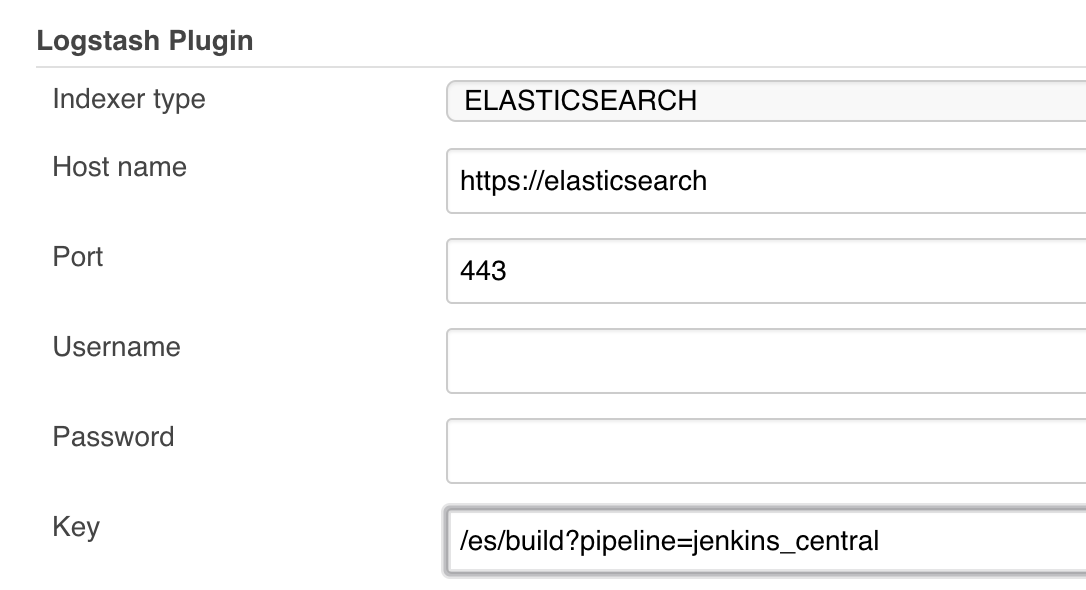New issue
Have a question about this project? Sign up for a free GitHub account to open an issue and contact its maintainers and the community.
By clicking “Sign up for GitHub”, you agree to our terms of service and privacy statement. We’ll occasionally send you account related emails.
Already on GitHub? Sign in to your account
Add support for Elasticsearch pipelines #49
Add support for Elasticsearch pipelines #49
Conversation
|
This becomes obsolete when #43 is merged. Here we will allow to configure a URL for elastic search. |
|
I might be misunderstanding what #43 is doing exactly, but I don't see how this is resolved with that PR. #43 involves refactoring, but pipeline support still does not exist. The URL for Elasticsearch is currently configurable, it just can't support pipelines because there is no way to add a query parameter in the URL box. |
|
With #43 you no longer have host, port and path (not allowing a query string) separated. You give the full URL in one field which can include a query string. |
|
Ok, I see where the confusion is. The issue with including a query string in the URL is a dynamic ID still needs to be added to the end of the URL before it is passed on to Elasticsearch. For example, let's assume the following configuration: Right now, I could theoretically change the key to |
|
@imdevin567 sorry, I don't follow. Where does the |
|
https://www.elastic.co/guide/en/elasticsearch/reference/current/docs-update.html This shows the convention for sending a document to ES. I'm not sure where the |
|
I can't see in your coding anywhere that you generate an ID. The coding you provide would generate a URL of the form |
|
Interesting. I have screenshots showing the behavior I'm seeing. Maybe I'm wrong in the reasoning as to why it's happening. Assume the above is my configuration. This theoretically should work based on how the URL is constructed. As you mentioned, this would create a URL in the form of This is what I see in Elasticsearch. Rather than using the query string in the URL, it sends it as part of the type. That led me to believe there was an ID appending to the URL, which would wind up with |
|
Can you try the following |
|
Maybe the problem is also that the current implementation treats the key as a path, probably resulting in escaping of the '?'. With the new way of configuring a complete URL it should work fine, as the url is parsed and the parameters should really end up as parameters. |
|
Obsolete, covered by URL in ElasticSearch |



This adds support for Elasticsearch pipelines to allow for transformation of documents. We are currently running this in production without any issues pushing to Elasticsearch 6.0.